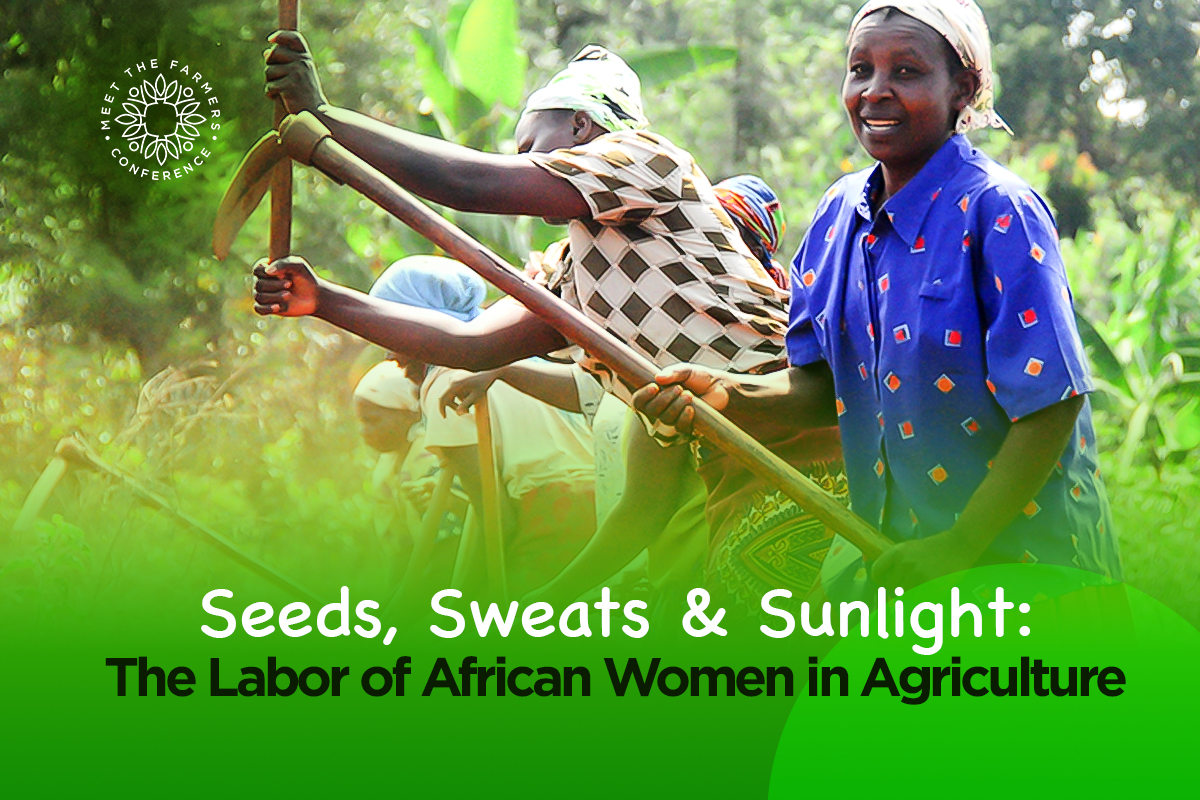Seeds, Sweats & Sunlight – the Labor of African Women in Agriculture

Women in agriculture play an important role in the quest for global food security. They provide most of the labor, yet their work often goes unrecognized. Their seeds, mixed with sweat drops as a result of the scorching sun, have produced food that has fed generations.
A woman puts her all in ensuring that the earth yields its increase. She cultivates her farmland and grows crops for domestic consumption; nurturing her plants the same way she handles her young. She weeds and ensures that the soil is regularly watered throughout the planting season. After harvesting, she handpicks and separates the crops – takes some home to feed her family and the rest to the market for sale. This is the reason why there are more women in local markets.
Women’s involvement in agriculture dates before the earliest existence of civilization – when they had to bore many children to help out in farmlands belonging to their families. This is because the continent has a history of relying on family farming, which depends on family labor.
Women have been the backbone of African rural agriculture and the guardians of the continent’s food security.
African women constitute about 70% of the agricultural workforce. According to a report by the World Bank and the Food and Agriculture Organization (FAO), women produce up to 80% of foodstuffs for household consumption and sale in local markets.
See also: AFDB to Setup Fourteen Agro Processing Zones Across Africa
The United Nations estimates that Africa will have a population of two billion people by 2050, the majority being women and youths. The most direct consequence of this exponential population growth is that there will be more mouths to feed. This feat can be achieved by empowered women. They are the major drivers of both rural and international trade of agro commodities.
The high level of participation of African women in the agricultural sector comes with challenging working conditions. Although the agricultural labor force is comprised mostly of women, the rules governing ownership and transfer of land rights are less favorable to African women than those in Asia and Latin America. According to FAO, women possess less than 1% of land and are often ignored in rural development projects which often target male-dominated activities.
Women deserve equal rights to own farmlands and agribusinesses. To improve yields, women should have better access to lands, mechanized tools, markets, fertilizer, credit facilities, and information. Hence, for International Women Day 2020, we have chosen to celebrate the unsung productive labor of the African women in agriculture. Although she is not yet where she wants to be, she is not where she used to be centuries ago.
At MTFC, we believe that Africa can feed the world, and empowering women is the major way to achieve food security. Happy International Women’s Day to the women in agriculture.
Written by:
Joy Ejere Uche







